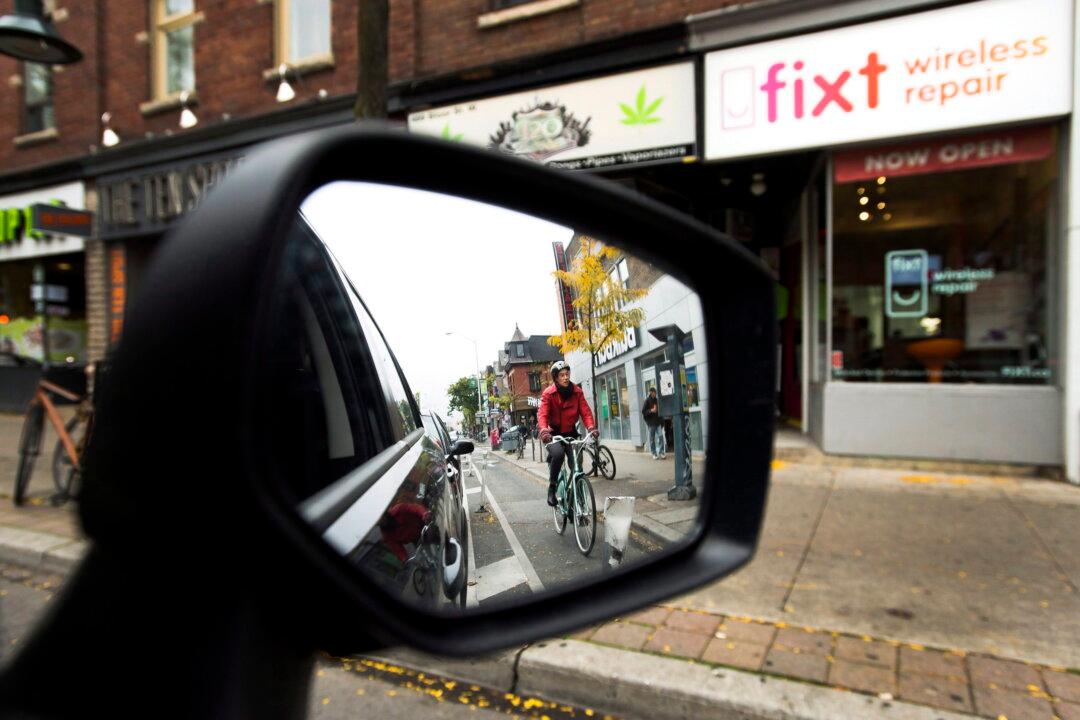Ontario Premier Doug Ford says his plan to remove three major bike lanes in Toronto will reduce gridlock, while the city’s mayor calls the move “arbitrary” and “costly.”
Ford’s government has put forward legislation to remove bike lanes on sections of Bloor Street, Yonge Street, and University Avenue and return them to vehicles, according to an Oct. 31 notice posted on the government’s website.





